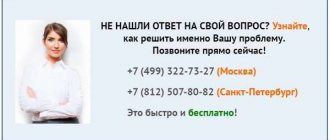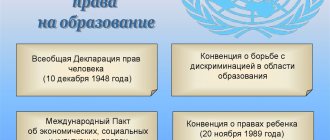Employment contract with the chairman or member of the board of the HOA
In accordance with Part 3.1. Art. 147 of the Housing Code of the Russian Federation, “a member of the board of a homeowners’ association cannot be a person with whom the association has entered into an agreement for the management of an apartment building, or a person holding a position in the management bodies of the organization with which the association has entered into the said agreement, as well as a member of the audit commission (auditor) of the association. A member of the board of a homeowners’ association cannot combine his activities on the board of the partnership with work in the partnership under an employment contract, as well as entrust, trust, or otherwise entrust to another person the performance of his duties as a member of the board of the partnership.”
Often the above norm is incorrectly interpreted in terms of the possibility of concluding an employment contract with members and the chairman of the board of the HOA. Differences in opinion are due to the fact that in fact the relationship between the members and the chairman of the HOA can be both civil and labor. And the most common mistake is trying to reduce everything to one type of relationship. In addition, the impossibility of concluding an employment contract is connected precisely with combining positions; later we will dwell on this issue in more detail.
And if few doubt the possibility of concluding a civil contract, concluding an employment contract causes numerous disputes.
Numerous judicial practices, which will also be discussed in this article, also confirm the possibility of concluding an employment contract. In particular, in the appeal ruling of the St. Petersburg City Court dated July 18, 2021 in case No. 33-14238/2017, the court concluded that “p. 3.1 Art. 147 of the RF Housing Code contains a labor law norm regulating the issue of the possibility of an HOA concluding an employment contract with a member of the HOA board.” The court also points out that “Article 9 of the Labor Code of the Russian Federation establishes that employment contracts cannot contain conditions that reduce the level of rights and guarantees of workers established by labor legislation. If such conditions are included in the employment contract, they cannot be applied.”
Let us note that the application of this rule on concluding an employment contract is possible not only in HOAs, but also in housing cooperatives. Thus, you can conclude an employment contract, a civil contract, or not enter into written contracts at all with the member and chairman of the board of the HOA.
What is the HOA responsible for?
- An agreement with a homeowners association: is it necessary and how to conclude it correctly
A complete list of the rights and obligations of the homeowners’ association must be specified in 2 documents – the Charter of the legal entity and the agreement. Certain provisions of the Housing Code of the Russian Federation are devoted to clarifications of what is included in the range of responsibilities of the HOA to its residents.
Listed below are the main actions that the organization is obliged to perform in the interests of participants.
The responsibilities of the homeowners association board include:
- ensuring timely and high-quality work on household services (snow removal, cleaning services);
- maintaining the building and communications in good condition;
- improvement and repair of playgrounds;
- organization of parking spaces and paths;
- other planned maintenance and servicing of the house;
- attracting the help of contractors who, for a fee, provide services for maintaining the house, maintaining the cleanliness and technical condition of equipment;
- taking care of the sanitary condition of common property (entrances, stairs, attics, basements);
- control over the implementation of repair work with the involvement of the owners according to the shares in the right to common property;
- protecting the interests of owners by determining the procedure for using property by all residents;
- ensuring the rights of owners with protection from unlawful actions of others;
- representing the interests of owners and premises included in the HOA.
Apartment owners have the right to independently expand the functions performed by the association, taking into account individual needs and based on a decision made through voting.
Recognition of the relationship as an employment relationship
By virtue of clause 11 of part 2 of Article 145 of the Housing Code of the Russian Federation, members and the chairman of the board of the HOA can carry out their activities on a reimbursable basis. They, as members of the elected collegial governing body of the HOA, may be paid remuneration in the amount determined by the general meeting.
At the same time, the payment of remuneration to the members and chairman of the board of the HOA depends on the availability of the necessary funds provided for these purposes in the annual budget of the HOA. In accordance with paragraph 3 of Article 148 of the Housing Code of the Russian Federation, the responsibilities of the board of a homeowners’ association include “drawing up estimates of income and expenses for the corresponding year of the partnership and reports on financial activities, submitting them to the general meeting of members of the partnership for approval.” If the decision to pay remuneration to the members and the chairman of the board was not made and was not reflected in the estimate, then the members of the board and the chairman have no legal basis for demanding payment of remuneration. Let us emphasize once again that payment of remuneration is not an obligation, it is the right of the owners.
Thus, in the case when the general meeting of the owners of the apartment building did not make a decision to pay remuneration to the chairman of the board, and no employment contract was concluded, the chairman of the board cannot demand payment of remuneration. The cassation ruling of the St. Petersburg City Court dated February 1, 2012 in case No. 33-1341/2012 states:
“The court of first instance established that the chairman of the board did not raise the issue of remuneration for the chairman of the board at any meeting of the board and was not brought to the general meeting of the HOA. According to the HOA staffing schedule, the position of chairman of the HOA board is not included in the staff. The HOA board, including the chairman of the HOA board, is elected by the general meeting of the HOA members and performs its duties on a voluntary basis; this position is not included in the staffing table and funds are not provided for the payment of wages; this practice has developed in the HOA since the date of its education. The case materials established that ... carried out his activities as chairman of the board on a voluntary basis and did not apply to the HOA to conclude an employment agreement with him, in connection with which the court of first instance came to the reasonable conclusion that there were no grounds for ... to collect remuneration from the HOA for the work performed work."
An important point is to prove the presence in the relationship of signs of civil law relations or signs of labor relations. Such proof takes place in court, so it is necessary to determine legal criteria by which civil law and labor relations can be distinguished.
There is no clear list of legally established criteria, however, you can be guided by the letter of the Social Insurance Fund of the Russian Federation dated May 20, 1997 No. 051/160-97, which states that the essential features of an employment contract are: 1. the presence in it of the employee’s labor function (and not a specifically defined task, which would be the final result of the work); 2. presence of an order and an entry in the work book; 3. procedure and form of remuneration; 4. regularity of remuneration; 5. also the mode and order of work, subordination to internal regulations.
The courts also take a similar position. Thus, the Kuibyshevsky District Court of the city of Omsk made a decision on January 14, 2015 in case No. 2-20/2015 to refuse to satisfy the claim of the chairman of the HOA board (to recover compensation for unused vacation upon dismissal) due to the fact that in fact there were no labor relations between him and the Medic HOA:
“...there are also no signs of actual labor relations in the relations between the parties. The Medic HOA does not have a staffing table, a job description for the chairman of the HOA board, internal labor regulations, or regulations on remuneration. The chairman of the HOA did not obey the labor regulations of the partnership. The remuneration paid to the chairman of the HOA did not depend on his qualifications, the complexity of the work performed, the conditions for its implementation, the quantity and quality of labor expended. The plaintiff’s activities as chairman of the board of the HOA were not systematic; he performed his duties from time to time, upon requests to him, he did not obey the working hours, he did not have a workplace. The court also takes into account the fact that the development of the above documents fell within the competence of the chairman of the HOA board, but during the period of his activity he did not initiate the development and adoption of the staffing table, did not develop a single local act (job description, labor regulations, regulations on remuneration), did not insist on concluding an employment contract. Thus, during the period of his activity, the plaintiff himself did not consider his relationship as an employment relationship, and did not make attempts to properly formalize his relationship with the HOA.”
You should also pay attention to the Appeal ruling of the Perm Regional Court dated October 14, 2015 in case No. 33-11023/2015, according to which the conclusion of only an employment contract is not enough; it is necessary to have other documents relating to labor activity and relevant deductions:
“The employment contract dated December 7, 2007, available in the case materials, was concluded ... acting both on behalf of the Granit-PK HOA and on its own behalf. From the above rules it follows that the relationship between the chairman of the board and the HOA is regulated by the provisions of housing legislation, i.e. are civil law. The execution of transactions by a representative on behalf of the person represented in relation to himself personally is prohibited by law (Article 182 of the Civil Code of the Russian Federation). ... There are also no local acts of the Granit-PK Homeowners Association regulating the performance of duties by the chairman of the partnership as labor, for example, internal labor regulations, job description of the chairman of the board, approved by the collegial governing bodies of the organization. There are no documents recording the working hours of the chairman of the HOA, or the vacation schedule for 2011–2014. Since the plaintiff positions himself as the head of the organization, compliance with these formal conditions depended on the proper performance of her duties and could, together with other circumstances (payment of insurance contributions to the Pension Fund of the Russian Federation), indicate a different nature of legal relations than what is provided for by virtue of housing standards legislation."
Thus, it is necessary to evaluate the relationship with the chairman of the HOA board separately in each specific case. If the position is present in the staffing table, order, the chairman is subject to internal regulations, performs certain duties, receives payment for their performance, decisions of the general meeting of owners also indicate that the chairman actually performs a labor function, then this indicates an employment relationship. If the activities of the chairman are not of a permanent nature, remuneration for this activity is not provided, or a management agreement is concluded with the manager (or management organization) - such relations are civil and labor relations do not arise.
Combination of work activities
The law prohibits combining activities as members of the board (and this includes the chairman) and other positions under an employment contract in the same HOA.
Part 3.1. Art. 147 of the Housing Code of the Russian Federation establishes that a member of the board of a homeowners’ association cannot combine his activities on the board of the partnership with work in the partnership under an employment contract, as well as entrust, trust another person or otherwise entrust him with the performance of his duties as a member of the board of the partnership.
For example, you cannot simultaneously be an electrician and the chairman of the board, an accountant and a member of the board in the same HOA.
Thus, in the appeal ruling of the Sverdlovsk Regional Court dated August 5, 2015, in case No. 33-11249/2015, a case was considered in which the chairman of the board simultaneously performed the duties of an electrician in the same HOA under an employment contract. Based on the results of consideration of the circumstances of the case, the court came to the following conclusion:
“The defendant’s powers did not include the responsibility to appoint an acting Chairman of the Board. At the same time, the defendant entered into an employment agreement with ..., under the terms of which the latter was entrusted with performing the duties of the chairman of the management board of the partnership during the period from to with payment in accordance with the staffing table. ... wages paid. Having established that ... was in the HOA in labor relations as an electrician, and at the same time was the Chairman of the Board of the HOA, taking into account the provisions of the above rule of law, the court made the correct conclusion about the illegality of the defendant’s actions in concluding an employment agreement and paying wages under it.”
At the same time, the legislation does not contain a ban on concluding agreements for the provision of services under civil contracts. However, here you should be careful and keep in mind that there should not be an actual replacement of labor relations with civil law ones.
Such an incident occurred in the Khabarovsk Territory. The chairman of the board concluded agreements between her and the Polet HOA for the provision of services for the preparation of documentation for registration at the place of residence, place of stay, deregistration; flower care; planting flowers, fertilizing and watering plants; cleaning the office of the Polet HOA, cleaning the local area of the house, removing garbage from trash bins, cleaning the garbage area. For the provision of services... a remuneration was transferred to oneself. In the appeal ruling of the Khabarovsk Regional Court dated June 9, 2021 in case No. 33-4337/2017, the court stated that:
“By virtue of clause 3.1 of Art. 147 of the Housing Code of the Russian Federation, a member of the board of a homeowners’ association cannot combine his activities on the board of the partnership with work in the partnership under an employment contract. The court found that ... illegally entered into civil contracts, which actually regulated the labor relations between her as an employee and as an employer of the Polet HOA.
The court declared the above agreements concluded by the chairman of the HOA board to be invalid.
At the same time, the right to work of members and the chairman of the board of the HOA is in no way limited. They are not prohibited from working under an employment or civil contract in other organizations. The prohibition only applies to: 1. the impossibility of working under an employment contract in the same HOA; 2. inability to hold positions in the management bodies of the organization with which the HOA entered into an agreement for the management of apartment buildings; 3. a member of the HOA cannot be the person with whom the management agreement for the apartment building has been concluded; 4. It is impossible to combine the positions of members of the HOA board, chairman of the HOA board and member of the audit commission (auditor) of the HOA.
Particular attention should be paid to the chairman of the board of the HOA, who performs his functions on the basis of an employment contract. According to Art. 276 of the Labor Code of the Russian Federation, the head of an organization can work part-time for another employer only with the permission of the authorized body of the legal entity, or the owner of the organization’s property, or a person (body) authorized by the owner. The head of an organization cannot be a member of the bodies performing the functions of supervision and control in this organization.
In accordance with Art. 273 of the Labor Code of the Russian Federation, the head of an organization is an individual who, in accordance with this Code, other federal laws and other regulatory legal acts of the Russian Federation, laws and other regulatory legal acts of the constituent entities of the Russian Federation, regulatory legal acts of local government bodies, constituent documents of a legal entity (organization) ) and local regulations manages this organization, including performing the functions of its sole executive body.
Therefore, if the chairman of the HOA board, fulfilling his duties under the employment contract, wants to work part-time in another place, he will need the consent of the owners or the board (you must also pay attention to what is indicated in this regard in the HOA Charter). Despite the fact that this restriction is not directly stated in housing legislation, when concluding an employment contract, the chairman of the HOA will also be subject to the provisions of labor legislation, in particular this restriction.
According to the Appeal ruling of the Perm Regional Court dated October 14, 2015 in case No. 33-11023/2015, “according to the HOA staffing table for 2012, the chairman of the board is not among the persons on the staff of the organization, i.e. persons with whom an employment contract has been concluded. It does not follow from the case materials that the plaintiff was paid a salary, his position was provided for in the HOA staffing table, and when performing his function, he was subject to internal labor regulations. Also noteworthy is the non-compliance with ... the restriction established by Part 1 of Article 276 of the Labor Code of the Russian Federation, according to which the head of an organization can work part-time for another employer only with the permission of the authorized body of the legal entity or the owner of the organization’s property, or a person (body) authorized by the owner . From the case materials it follows that ... she worked at LLC “***” since February 2012.”
A similar situation was considered in the Saratov region. Thus, by the decision of the Leninsky District Court of Saratov dated March 6, 2013 in case No. 2-446/2013, the following was established:
“... is a co-owner of the residential premises, a member of the Molodezhny HOA. At the general meeting of premises owners, held from 04/02/2011 to 04/20/2011, she was elected a member of the board, and then on 05/11/2011 - its chairman (case file 31). On May 11, 2011, an employment contract was concluded with ... for the implementation of operational practical management of the current activities of the Molodezhny HOA as the head of the executive body of the HOA, where clause 1.3. It was established that the chairman of the board will begin work on May 11, 2011. In accordance with clause 1.2. of the employment contract, the position of chairman of the board of the HOA is not the main place of work of the Chairman of the Board. From the copy of the work book TK-II No. (case file 37-42), belonging to ..., presented in the case materials, it is clear that while she was in the elective position of the chairman of the board of the HOA, the plaintiff also performed the main work from 05/03/2005 to 09/30/2011 chief accountant at Sokol-Saratov LLC (case file 40). However, the plaintiff did not present evidence that would indicate permission from the owners of the premises or members of the board of the Molodezhny HOA for her to work part-time with another employer, which is a violation of labor legislation.”
Rights and powers of the chairman of the HOA
All powers of the chairman of the HOA are defined in Article 149 of the Housing Code. Specific rights are usually spelled out in the HOA Charter, adopted by the general meeting, but they cannot contradict the provisions of the law. Thus, in accordance with the Housing Code, the chairman of the HOA has the following powers:
- sign payment documents on behalf of the HOA;
- develop a staffing table (i.e. determine the number of employees in the HOA, their work schedule and payment for their labor);
- control the execution of decisions of the general meeting and the board;
- enter into agreements with organizations serving the house.
Based on this, his rights are determined:
- fully and completely dispose of all funds located in the bank accounts of the HOA;
- settle accounts with organizations providing operational services and supplying utilities;
- do your own accounting;
- hire and fire employees;
- pay wages to HOA employees, including yourself;
- monitor the work of HOA employees and third-party organizations with which a service agreement has been concluded.
In addition, the agreement may define the following powers of the chairman:
- act on behalf of the HOA in court and take funds to cover legal costs;
- file lawsuits;
- announce a tender for a home maintenance competition;
- have a casting vote if the opinions of the participants in the general meeting are equally divided;
- issue residents with the necessary documents;
- charge rent.
In principle, the listed rights can be transferred to other HOA employees. For example, the right to speak in court - to a lawyer, to calculate rent - to an accountant, to issue documents to residents - to a secretary, etc.
If a house has a large number of residents, this approach is advisable. But if the house is small, then all these rights and responsibilities can be given to one person - the chairman of the HOA.










